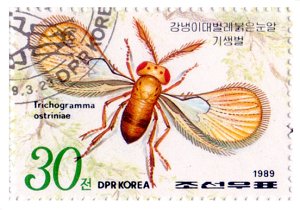The neonicotinoid insecticides imidacloprid, acetamiprid, dinotefuran, thiamethoxam and clothianidin are commonly used in greenhouses and/or interiorscapes (plant interiorscapes and conservatories) to manage a wide range of plant-feeding insects such as aphids, mealybugs and whiteflies. However, these systemic insecticides may also be harmful to natural enemies, including predators and parasitoids. Predatory insects and mites may be adversely affected by neonicotinoid systemic insecticides when they: (1) feed on pollen, nectar or plant tissue contaminated with the active ingredient; (2) consume the active ingredient of neonicotinoid insecticides while ingesting plant fluids; (3) feed on hosts (prey) that have consumed leaves contaminated with the active ingredient. Parasitoids may be affected negatively by neonicotinoid insecticides because foliar, drench or granular applications may decrease host population levels so that there are not enough hosts to attack and thus sustain parasitoid populations. Furthermore, host quality may be unacceptable for egg laying by parasitoid females. In addition, female parasitoids that host feed may inadvertently ingest a lethal concentration of the active ingredient or a sublethal dose that inhibits foraging or egg laying.
Source: Raymond A Cloyd and James A Bethke (2011) Pest Management Science 67, 3-9
http://onlinelibrary.wiley.com/doi/10.1002/ps.2015/full

- Log in to post comments
